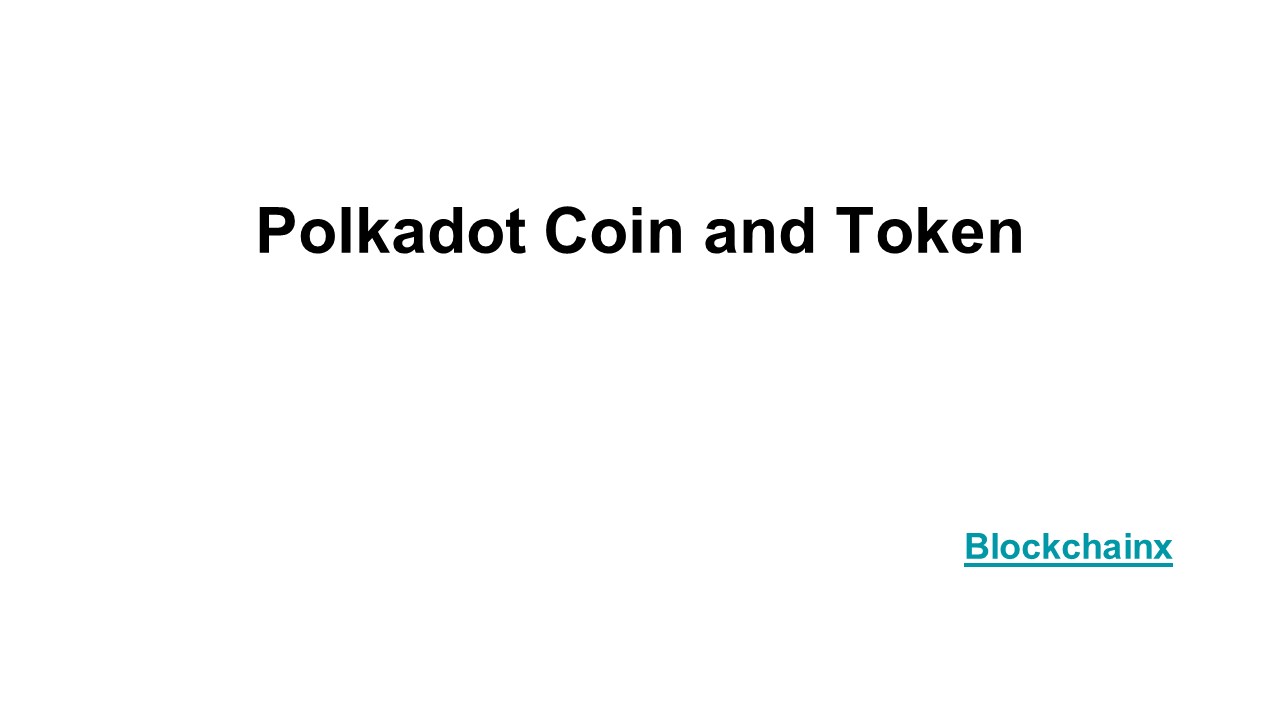bridge smart contract - PowerPoint PPT Presentation
Title:
bridge smart contract
Description:
The future is cross-chain and you can do that now a token bridge. A cross-chain bridge let's you launch your token on multiple blockchains and allow users send your tokens between chains. Launch your token on any EVM blockchain with our cross-chain bridge. – PowerPoint PPT presentation
Number of Views:2
Title: bridge smart contract
1
Polkadot Coin and Token
Blockchainx
2
What is a Polkadot token? Polkadot Tokens (DOTs)
are network native tokens. Polkadot is a
blockchain protocol that guides global computer
networks as an incentive and allows users to
launch and operate blockchains. Currently, the
DOT circulation supply is approaching 900M, and
the maximum supply of Polkadot coins has not been
determined in advance. These tokens are primarily
intended to strengthen network connectivity and
activate Polkadot's governance and upgrades.
3
- What are the unique features of the Polkadot
blockchain? - Polkadot operates two types of blockchains by
design. A basic network (relay chain) and a user
network (parachain). - The difference between them is that the
transactions on the relay chain are permanent.
Conversely, parachains are customized for a
variety of uses and supplied to the main
blockchain. - Polkadot's unique design allows you to keep your
transactions secure and accurate by using only
the computing resources needed to run the main
chain. - At the same time, DApps development it has the
advantage that users can customize many
parachains for many different uses. - Visualization material is Polkadot's unique
multi-chain framework shown in the white paper.
4
- An overview of the structure and components of
Polkadot. - Bridge A promoter between parachains,
parathreads, and other blockchains. - Parachain An independent chain that allows you
to form your own tokens. - Parathread Provides a flexible model that
leverages independent chains to form new tokens. - Relay Chain Facilitates consensus between
different chains. - Overall, the Polkadot blockchain allows users to
make transactions more personally and
efficiently. This is because the blockchains they
create do not expose user data to the shared
network. Gavin Wood said it could theoretically
handle more than one million transactions per
second. DApps Development Services
5
- The beginning of polkadot coins
- Polkadot was first launched in 2017 with an ICO
donation of 140 million. In addition, we made
two private sales in 2019 and 2020, raising an
additional 100 million. - However, due to the vulnerability of Parity's
Ethereum wallet, hacking that contains about
two-thirds of the ICO tokens that were previously
frozen has occurred, and the frozen tokens have
not been recovered to date. - Surprisingly, the team behind Polkadot decided to
proceed with this project despite these losses. - In August 2020, Polkadot began allowing investors
to trade the remaining tokens. As a result, DOT
has been listed on many major exchanges such as
Finance, Huobi and Kraken. Market capitalization
surged due to high volume. - Currently, Polkadot Coin (DOT Token) has a market
capitalization of over 7 billion and is ranked
7th on the cryptocurrency market capitalization
list.
6
- How does Polkadot staking work?
- In order for you to know what a Polkadot coin is,
it is essential to understand its purpose and
function. DOT cryptocurrencies play a decisive
role in maintaining and operating the Polkadot
blockchain. - Users who own a DOT and have an equity stake can
vote for network upgrades. - Each vote is proportional to the amount of money
the user has stakes on the DOT cryptocurrency. As
of 2020, DOT has an annual staking rate of 10 to
15 on exchanges such as Kraken and Bitfinex. - To encourage staking, Polka Dots will be
compensated by the newly issued DOT, depending on
how many tokens the user has stakes. The Polkadot
blockchain has four consensus roles, all of which
are covered.
7
- Validators The person who holds the relay chain
by staking the DOT and validating the proof. - Nominators Protect your chain by arranging the
Validator list short and staking the DOT for work
reliability. - Collectors Keeps most shads. They collect shard
transactions from users and produce proofs for
Validators. - Fishermen These monitor network activity and
report suspicious activity to Validators. - Staking is one of the three main uses of DOT
tokens, apart from the basic transactions for
governance and bonding. Parachains within the
Polkadot network are public blockchains, private
blockchains, or other data sources. Parachain
data is accessed through special nodes and sent
to Polkadot, similar to how distributed Oracle
operates. Parachains are activated by staking DOT
tokens and removed from Polkadot by unstaking.
8
WEBSITE https//www.blockchainx.tech/dapp
s-development MAIL
contact_at_blockchainx.tech COMPANY BLOCKCHAINX































